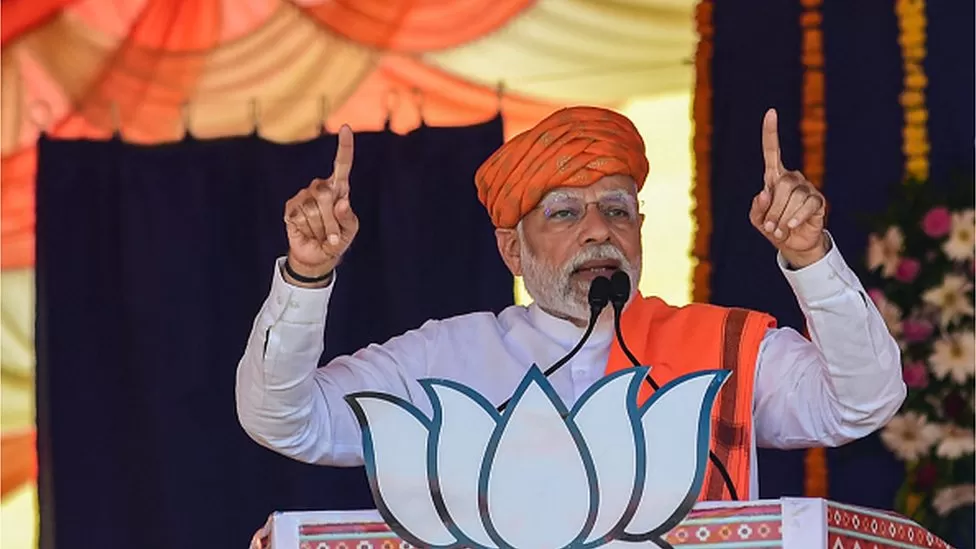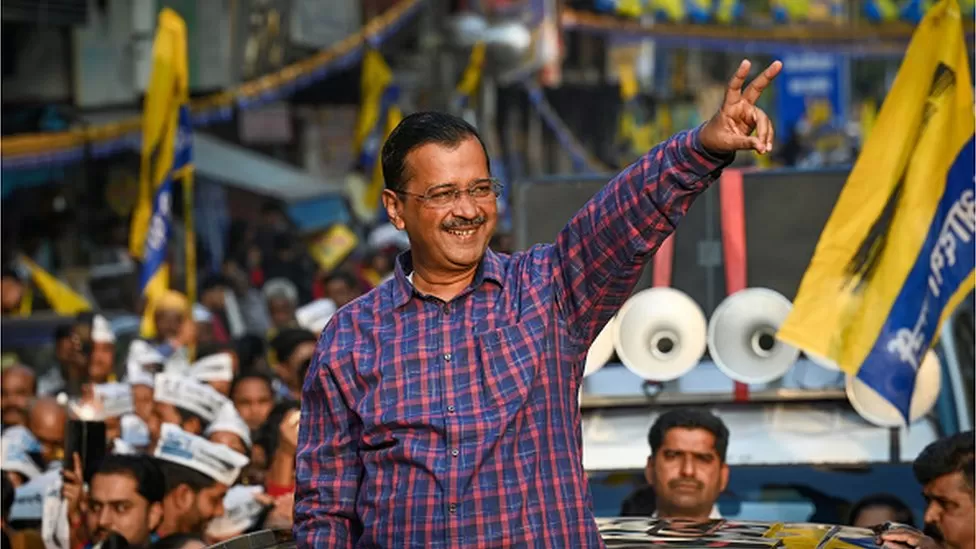Himachal Assembly elects President, who runs: 10 points
Himachal Congress Chief Minister: Will Virbhadra Singh’s legacy still be decisive a year after his death? This is the question at the heart of every decision

Shimla / New Delhi: The Himachal Congress legislative meeting is scheduled to empower the national leaders to decide who will be the next chief minister in Shimla. It can be summed up as a “royal” legacy compared to those who ascended the ranks.
1. In the race for the post of Chief Minister of Himachal – in addition to the Chief Minister of the state Pratibha Singh – are Sukhvinder Singh Sukhu and Mukesh Agnihotri. Dark horses like Harshwardhan Chauhan were also in the running, but now all three sides are history.
2. Sukhvinder Singh Sukhu, the third Member of Parliament for Nadaun in Hamirpur district, is a lawyer by training and has emerged from the ranks of the Congress wing, National Students Union of India (NSUI).
3. During the campaign, he admitted that he was a party and spoke openly to Outlook magazine: “There is no party in Congress. He died on the death of Virbhadra Singh, “talking about the former president whose wife Pratibha Singh is still a candidate.” Yes, of course, I also want to be the president,” he said – he asked another question.
4. From a different lineage from the former king Virbhadra Singh, Sukhvinder Singh Sukhu, as an activist in the Himachal Pradesh University, Shimla, head of the NSUI state unit in the late 1980s. He graduated in politics government all the time, he served. as the president of the state Youth Congress in the 2000s.
5. Although he hails from another district in another part of the state, he won the municipal elections twice in Shimla and was elected as the state divisional secretary in 2008, eventually reaching the top of the state. Kuldeep Rathore replaced him as the head of the state in 2019, which appeared in a contract against the union. After Virbhadra Singh’s death, his wife was appointed as the head of the state department earlier this year – a move that was part of an effort to ensure that the sympathy vote did not go to waste.
6. In the chair of the president, Sukhvinder Sukhu is less talkative than Pratibha Singh, and sticks to the line “higher orders will decide”.
7. Pratibha Singh, a three-time parliamentarian, derives her power and status from being the wife of the late Virbhadra Singh, the king of Rampur-Bushahr near Shimla who served as prime minister six times.
8. Virbhadra Singh died last year and his son Pratibha Singh Vikramaditya Singh is now a two time MP. His supporters are attracted to the sentiments of “Rani”, arguing that “elections are being sought in the name of Raja sahib”. He and the boy also talked about this by making a game for him to get a seat.
9. Another candidate is Mukesh Agnihotri, the leader of the opposition under the current BJP government, who has won his fifth Assembly election since switching from journalism to politics about a year ago. twenty years ago. He hasn’t said anything.
10. Mukesh Agnihotri was considered a protector of the “royal family”, especially Virbhadra Singh, but gradually grew to have his own ambitions.
Himachal Pradesh: Congress leaders Shukla, Baghel and Hooda meet the government in Shimla
Himachal Pradesh Congress leader Rajiv Shukla and party observers Bhupesh Baghel and BS Hooda met Governor Rajendra Vishwanath Arlekar at Raj Bhawan in Shimla.

Legislators meeting to elect a party leader, said that “whatever the leadership decides will be final”.
“There is no question of ignoring anyone, everyone will be called together to move forward. Everyone has the right to express their opinion. No problem,” he added. As votes were counted for the Gujarat and Himachal Pradesh Assembly elections on Thursday, the Bharatiya Janata Party recorded a major victory in Prime Minister Narendra Modi’s state by winning 156 seats in the 182-state assembly, while the Congress pulled out one saffron. in the northern state by winning 40 seats in the 68 member assembly.
In Gujarat, the Congress finished second with 17 seats, while the Aam Aadmi Party (AAP), which ran with a high-decibel campaign, won 5 seats. Independents won three seats and Samajwadi Party won one.
Congress recorded its worst ever performance in Gujarat as AAP won part of the opposition polls. The outgoing Chief Minister of Gujarat, Bhupendra Patel, is expected to return for his second term and be sworn in in December.
In Himachal, the BJP came second with 25 seats, followed by the Independents with three seats. AAP did not open its account while CPI-M also won the seat while the incumbent MP Theog lost. Himachal Pradesh has not elected a ruling government since 1985. Gujarat Election Results
Prime Minister Narendra Modi said Gujarat listened to him when he appealed to people to break his record, giving the BJP its biggest margin in the state’s electoral history. He also said that he has promised the people that he will work hard so that “Bhupendra breaks Narendra’s record”, referring to his encouragement to get higher numbers for the Bhupendra Patel-led state government. its endless campaign period before assembly elections. . .
“I told the people of Gujarat that this time should break Narendra’s record. I promised that Narendra will work hard so that Bhupendra can break Narendra’s record. “Gujarat has broken all records by giving BJP the largest margin in its history,” the Prime Minister said while addressing party workers at the BJP headquarters on Thursday, as the saffron party won a majority of seats. 156 out of 182.
The Chief Minister said that Gujarat created history by extending love to the BJP when the party was in power in the state for 25 years. He said that the BJP’s support reflected people’s anger against the monarchy and increasing corruption. People voted for BJP because it brings all the institutions for the poor and middle class first, he added. Election results in Himachal Pradesh
Outgoing Chief Minister Jairam Thakur submitted his resignation to Governor Rajendra Vishwanath Arlekar. “I respect the law. Soon, I will submit my resignation to the governor,” Thakur told reporters shortly before submitting his resignation to Governor Arlekar.
Independent candidates won three seats. AAP did not open its account while CPI-M also won the seat while the incumbent MP Theog also lost. AAP got 1.10% of votes, CPI-M 0.66%, BSP 0.35%, and Independents and others got 10.39%, while 0.59% went to NOTA. Counting of votes for the 68-member assembly began at 8 am.
The slogan of the BJP today is “Raj nahin, riwaaj badlega”, which means “the party will change, not the government”. The difference of less than one percent between the Congress and the BJP was highlighted by Prime Minister Narendra Modi and BJP leader JP Nadda in their speech to the party workers in Delhi after the announcement of the results of the vote.
In Himachal Pradesh, the Prime Minister said that the BJP will continue to work to meet the demands of the state and raise the issues of the people in the future. According to data from the Election Commission of India, in Gujarat, BJP got 53% of the votes, Congress 27% and AAP 13%. The BJP won 147 seats and led with nine seats in the 182-member state assembly. For the Congress, the victory in Himachal Pradesh is important for revival as it has been defeated by several electoral losses in recent years.
About 76.44% of voters have exercised their right to vote on November 12. A total of 412 voters, including 24 women and 99 independents, are in the race.
Gujarat result: Why Modi continues to be India’s biggest voter

Indian politicians in power are among the most influential people in the world.
“Two out of three governments are overthrown in India. In America, the figure is the opposite – two out of three are elected,” Ruchir Sharma, a leading researcher, once said. Narendra Modi seems to be different. The Bharatiya Janata Party (BJP) leader won three assembly elections on the trot and ruled Gujarat, his home state, for over 12 years before moving to Delhi in 2014. Since then, he has led his team to two impressive victories to rule India.
This did not stop Prime Minister Modi from campaigning for the Gujarat state assembly. Thursday’s record victory – the BJP won 156 out of 182 seats and more than half the popular vote – paved the way for a seventh term in the state. He also pointed out that Mr. Modi is “dealing with Gujarat”, as many commentators have put it.
Mr. Modi has turned the Gujarat election into an election itself. He spoke at more than 30 press conferences and went on a mile-long tour to attract voters and get saturation coverage on news networks. At the top, he appealed to asmita or Gujarati pride and asked voters to “trust” him in the BJP government. “You don’t expect a prime minister to invest so much time and energy in state elections,” said Amit Dholakia, a political science professor at Gujarat’s Maharaja Sayajirao University.
Mr Modi may have been forced to work harder than usual. His ideology of strong Hindu nationalism, along with promises of economic development, continue to attract voters. Gujarat was rocked by religious unrest soon after it came to power in 2002, but that did not pan out. In fact, Gujarat outperforms most of India in terms of investment and per capita income; and has the fourth largest economy in the country.

Mr. Modi, commentators say, knows that a setback for the BJP in Gujarat will not only hurt his party, but it will hurt him. One of the reasons why he spent so much time and energy campaigning in the state this time may have to do with the arrival of the opposition Aam Aadmi Party (AAP), led by Arvind Kejriwal. AAP has been ruling the city-state of Delhi since 2015 and won the Punjab capital earlier this year. On Wednesday, he took charge of the cash-strapped state in capital Delhi, which was ruled by the BJP for 15 years.
Mr. Kejriwal is a fiery leader who is throwing down the Modi gauntlet: he moved to Varanasi to attend the BJP elections in 2014. (He lost) In Gujarat, his party started from the top five. better. seat, but received nearly 13% of the popular vote, largely at the expense of the Congress opposition. “He has built an opportunity in the opposition. He needs to build a network of grassroots and trustworthy leaders,” says Professor Dholakia.

A survey conducted by YouGov, a global market research firm, and the Delhi-based think tank Center for Policy Research (CPR), in over 200 countries earlier this year found that AAP is taking a foothold as abroad and abroad. The BJP, ruling the opposition Congress is happy. “They have a foot in the door. It doesn’t mean they will win the next election, but they are becoming politicians in the state,” says Center for Policy Research Fellow Rahul Verma.
But Modi’s BJP is still a tough one to beat. His undoubted appeal as a vote gatherer is his party’s Hindutva ideology, strong organizational apparatus, extensive infrastructure, political record, strong social connections and media backing.
A weak opposition is helping Mr Modi a lot – the Congress party’s performance in Gujarat shows voters don’t find him attractive, analysts say. The party’s victory over the BJP in the small hill state of Himachal Pradesh – where voters have a reputation for ousting leaders – offers only rare hope for the weakened party. However, the vote in Himachal Pradesh “also shows how much power Mr Modi can bring to the BJP in state elections”, said political scientist Asim Ali.
What the BJP’s victory in Gujarat shows is that the alliance of the rainbow – the upper, lower and middle classes, also known as the Other Backward Classes (OBC) – that the party has assembled continues to -bring a lot. OBCs alone constitute about half of Gujarat’s population of more than 60 million and are now the majority of the party’s voters.
Modi’s charisma and connection with the voters remains BJP’s biggest strength. “But the party’s greatest strength is also its weakness. Take Mr Modi out of the equation and the BJP looks weak,” says Professor Dholakia. “Depending on Mr. Modi is also an endorsement of weak leaders. Other leaders are not popular.”
The BJP is set to continue ruling Gujarat for 29 years – the only Communist Party of India (Marxist) to rule a state (West Bengal) for longer, a record of 34 years. Mr. Modi, 72, continues to be an outspoken, anti-authoritarian politician, both in his home state.


